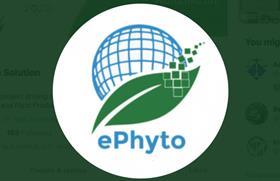
The Industry Advisory Group (IAG) of the IPPC ePhyto Solution has called on governments to support the adoption of ePhyto to facilitate international agricultural trade, a step it regards as crucial to safeguard global food security beyond the Covid-19 recovery period.
According to the European Fresh Produce Association, Freshfel Europe, which is a member of the IAG, the global trade of plant products depends on communication and transparency of phytosanitary requirements in order to protect plant health and ensure unrestricted and safe trade of goods internationally.
'Phytosanitary certificates facilitate such trade and benefit plant production sectors as well as consumers,' Freshfel stated in a press release. 'Electronic certification as part of a broader endeavour for trade facilitation has proven itself indispensable during the ongoing Covid-19 pandemic to maintain continuity of agricultural trade despite limitations on air traffic and courier services. The IPPC (International Plant Protection Convention) ePhyto Solution is a globally uniform approach with improved crisis resilience, consistency, security, fraud prevention, sustainability and replacement of paper documentation.'
The IAG, made up of a consortium of industry associations representing the global trade of plant products, called on policymakers to commit to a 'faster onboarding to the IPPC ePhyto Solution and accelerated access for all countries, including developing and least developed economies, regardless of infrastructure capacity'.
The ePhyto Solution was eventually meant to become a permanent replacement for paper certificates even prior to the Covid-19 pandemic. It is led by the IPPC Secretariat, with the involvement of other international organisations and governments, with 90-plus countries registered.
'A number of countries including Argentina, Chile, Fiji, Ghana, Morocco, Netherlands, New Zealand, Sri Lanka, Samoa and US are already operating the system to transmit phytosanitary certificates safely from NPPO to NPPO,' Freshfel revealed. 'The EU TRACES system was connected to the ePhyto Hub in May 2020 for imports only, with the aim to be fully operational by the end of the year.'
The IAG welcomed the actions of governments implementing contingency plans that include acceptance of digital attachments, signatures and copies for trade-related documents during the Covid-19 pandemic.
'Electronic trading documentation should not only be seen as a one-off, emergency measure, but as a permanent solution to ensure plant product trade is crisis-resilient in the future and that goods can keep moving efficiently,' Freshfel stated. 'The IAG is concerned that many countries have taken a very individual path to digital certification, that may end when the emergency measures expire.'
The IAG also expressed its support for the further development of the ePhyto Solution and stressed that it was the responsibility of governments and policymakers to guarantee the sustainability of the project until it is fully operational.
'Ultimately, the IAG hopes to work with all actors for a successful deployment of the IPPC ePhyto Solution including policy makers, national and regional plant protection organisations, and customs experts worldwide,' Freshfel concluded.



